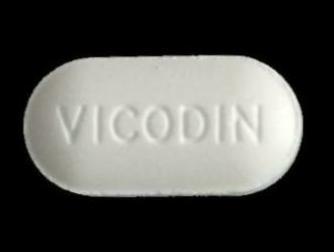Major Decline in Hydrocodone Prescribing
/By Pat Anson, Editor
Prescriptions for Vicodin and other hydrocodone products declined dramatically in the United States after the opioid pain medication was rescheduled by the Drug Enforcement Administration to make it harder to obtain. But there may have been unintended consequences for cancer patients, according to a new study published in JAMA Internal Medicine.
In October 2014 the DEA rescheduled hydrocodone from a Schedule III controlled substance to a more restrictive Schedule II medication because of its “high abuse potential.”
The rescheduling limits patients taking Vicodin, Lortab, Lorcet and other hydrocodone combination products to an initial 90-day supply and requires them to see a doctor for a new prescription each time they need a refill.
In the first year after rescheduling, the number of hydrocodone prescriptions in the U.S. plunged by 22 percent, from nearly 120 million to 93.5 million.
“Dispensed hydrocodone combination product prescriptions decreased substantially after rescheduling by the US Drug Enforcement Administration, with 26.3 million fewer hydrocodone combination product prescriptions and 1.1 billion fewer hydrocodone combination product tablets dispensed in the year after rescheduling,” wrote lead author Christopher Jones, PharmD, U.S. Department of Health and Human Services. “Most of this decline was due to the elimination of hydrocodone combination product prescription refills, consistent with the prohibition on prescription refills for schedule II medications.”
The decline in prescribing was seen in almost all healthcare specialties, including primary care, surgery, dentistry, emergency medicine and oncology. Nearly 187,000 fewer prescriptions for hydrocodone were written for cancer patients in the first year after rescheduling, a decline of nearly 21 percent.
“It appears that up-scheduling of hydrocodone accomplished the goal of the DEA,” said Lynn Webster, MD, past president of the American Academy of Pain Medicine and author of The Painful Truth. “The more important question is what impact this has had on the rate of abuse and patient access to the medication. It may be too early to know whether rescheduling has affected the rate of people abusing opioids or if it just forced some abusers to seek alternatives like heroin.
“The JAMA report suggests that even cancer patients found it more difficult to obtain hydrocodone. That should be alarming to the medical community and illustrate to policy makers and law enforcement there are consequences to every action and in this case some people have been subjected to more cost, inconveniences and abandonment without any data to suggest an improvement in abuse or overdoses.”
Interestingly, the number of hydrocodone prescriptions written by pain management specialists after rescheduling increased by 7 percent. And there was a modest 4.9% increase in the number of prescriptions for opioids other than hydrocodone, as some patients apparently switched to opioids that were easier to obtain.
"The uptick from pain specialists most likely reflects a transfer of narcotic provision from non-specialists to specialists. That is, a decrease in prescribing from those who have less training in prescribing opioid pain relievers offset to some extent by an increase from those who have more such training," said Stuart Gitlow, MD, Executive Director of the Annenberg Physician Training Program in Addictive Disease and past president of the American Society of Addiction Medicine.
Gitlow believes the large overall decline in hydrocodone prescribing was a sign that many of the refills being ordered before rescheduling "were ultimately determined to be unnecessary."
"This was not meant to address the overall opioid prescribing problem, but was rather filling one hole in the dike," Gitlow wrote in an email to Pain News Network. "There remains much left to do, such as removal of the cap for treatment of opioid use disorders in office settings, and availability of tapering to avoid having patients move to heroin when their supply of prescription narcotics is suddenly cut off."
Hydrocodone was once the most widely prescribed medication in the United States, with over 137 million prescriptions annually. Prescribing of hydrocodone was already in decline before rescheduling, because of growing concern the drug was being abused and diverted.




